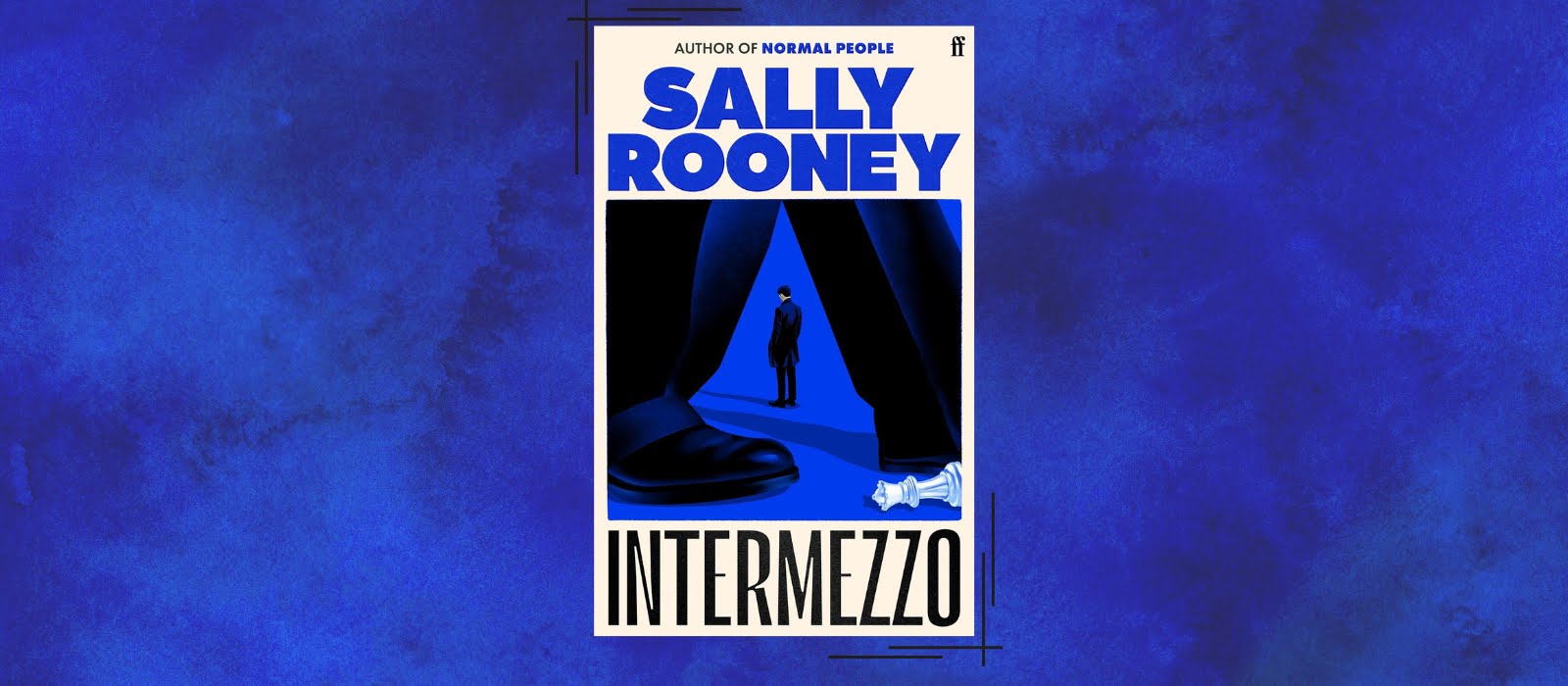An interrogation of the human condition brought to life with ambitious literary devices and fresh stylistic choices, Intermezzo may not be the “new Normal People”, but it may well be Rooney’s magnum opus.
By virtue of her own talent and popularity, new works from Sally Rooney are scrutinised to a much more intense degree than that of her contemporaries. Since the release (and meteoric success) of Conversations with Friends and Normal People, and their respective small screen adaptations, the words ‘Sally Rooney’ have become something of a literary subgenre, a reductive brand of Rooney-ism that comes much to the chagrin of the author herself and the many young-Irish-female-realist writers attempting to make their own names.
Rooney’s new title, Intermezzo, isn’t even out yet and it’s already being held up to the light and examined for cracks or contradictions. The author is both lauded and condemned for her portrayal of “emotionally stunted Irish people”, but Rooney’s canny ability to give us a new perspective into the interior worlds of these fictional characters is unmatched — even if they don’t tell each other how they feel, each silence is dripping with sincerity.
Intermezzo digs into the male psyche through the contrasting perspectives of Peter, a lawyer in his 30s, and his younger brother Ivan, a 22-year-old chess prodigy, as they’re thrust into the throes of grief after the passing of their father.
The book oscillates between the lives of these brothers, and their approach to life, death, and love, and the contrasts couldn’t be more apparent. On the surface, Peter is suave and sophisticated, someone who’s got his life together, but the stream of consciousness style his thought process is illustrated through brings to life the frenzied chaos of his inner turmoil.
Ivan’s, on the other hand, is much more oblique. He is straightforward and disarming in his dealings, he reasons with things differently. His analytical thinking becomes disrupted by this new interlude of grief, and his first forays with real, adult love serves as a metamorphosis of sorts.
The drawback? In fleshing out the interior worlds of her male leads to such an extent, Rooney failed in part to extend the same courtesy to some of her female characters. Now, because it’s Sally Rooney, I have to assume that this was entirely intentional.
While we understand the complicated history and hear the rumination of Ivan’s love interest Margaret, a divorcee 14 years his senior, we merely catch fleeting glimpses of Peter’s love interests. Caught between two lovers, he positions Sylvia, a university lecturer and college sweetheart, and Naomi, a 20-something student whose life runs at a much different pace, on opposite sides of the spectrum. Where Ivan sees Margaret as a wholly realised person, Sylvia and Naomi serve to “delay however briefly [Peter’s] next encounter with the meaninglessness of existence”, coming to understand far too slowly that people (yes, even 20-something year old women) contain multitudes.
A curious author who writes with great empathy, Sally Rooney muses through her prose on what it means to exist and love, and her level of emotional intelligence meets with her literary prowess and ambitions beautifully through this book. It delves deeper into our psychology, into religion, into philosophy, mortality, morality, longing, privilege, social mores, disillusionment, monogamy, and self perception without ever feeling like it’s biting off more than it can chew.
“Sadness, missing his father, and a kind of shame somehow, because each passing day seemed to bring Ivan further away from him … The realisation that his adulthood, into which he was entering now so definitively, and which would last the rest of his life, would have to be lived without his father. That he was becoming a person his father would never know.”
These brothers are, in the aftermath of death, searching for the meaning of life, to love and be loved, to grieve without guilt, and they’re floundering with the complexities that exist within themselves and all of those around them. It turns out, the external world is actually quite far away from the interior one.
The book’s title has two meanings. In music, an intermezzo connects two larger sections, while in chess, it is an unexpected move that requires immediate action. The intermezzo at the core of this novel is death, an occurrence that splits time in half so that forever more, there is a ‘before’ and an ‘after’. There is an old you, and a new you.
The beauty of Intermezzo is its resounding authenticity, its existence as a text that proffers existential questions without the arrogance of an attempted answer. Death and love are two of the most ubiquitous topics of all, things we all experience, have experienced, or will experience. Love and death are somehow plainly ordinary, everyday occurrences, but on an individual level, they’re the most earth shattering, all encompassing experiences of all.
‘Intermezzo’ by Sally Rooney is published by Faber, and goes on sale on Tuesday 24 September.
Imagery via BBC and Element Pictures.























